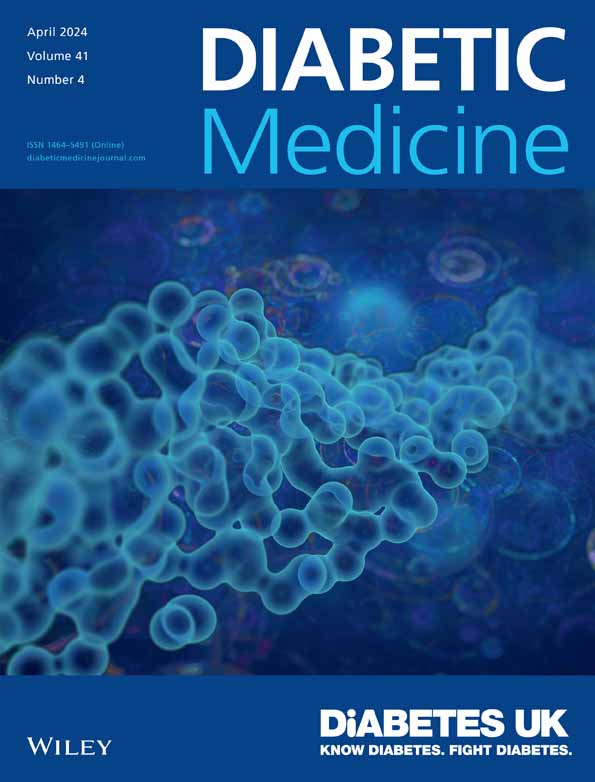Impact of personalized diabetes care on distress and treatment satisfaction in people with breast cancer
Abstract
Aims
In patients with breast cancer (BCa) and diabetes (DM), diabetes distress (DD) and treatment satisfaction (DTS) can influence BCa management and outcomes. We assessed the impact of implementing a personalized diabetes care model in patients with BCa.
Methods
Patients in active treatment or surveillance for BCa with an HbA1c > 53 mmol/mol (7%) or random blood glucose >11.1 mmol/L were included. Participants were offered continuous glucose monitoring (CGM), virtual care and a dedicated diabetes provider for 6 months. Primary outcomes included DD measured by the Diabetes Distress Survey (DDS) and DTS measured by the Diabetes Treatment Satisfaction Questionnaire (DTSQ). Questionnaires were conducted at 0, 3 and 6 months.
Results
Thirty-one women were enrolled (median age 61, IQR 49.0–69.0). Compared to baseline, the mean DDS score was lower at both 3 months (2.2 vs. 1.8 [n = 27], p = 0.004, SD = 0.70) and 6 months (2.3 vs. 1.8 [n = 23], p = 0.002, SD = 0.70). The mean DTSQ score was higher at 3 months (baseline: 20.5 vs. 3 months: 28.7 [n = 28], p < 0.001, SD = 9.2) and 6 months (baseline: 20.4 vs. 6 months: 30.0 [n = 26], p < 0.001, SD = 9.7).
Conclusions
Personalized diabetes care models that emphasize remote management and optimize access for those with BCa may lower DD and improve DTS.
CONFLICT OF INTEREST STATEMENT
JH, YMC, LB, GC, KF and MH: none. MM has research funding from Dexcom, Inc. SMT receives research funding from: Genentech/Roche, Merck, Exelixis, Pfizer, Lilly, Novartis, Bristol Myers Squibb, Eisai, AstraZeneca, NanoString Technologies, Cyclacel, Nektar, Gilead, Sanofi and Seattle Genetics; SMT has served as a paid consultant/advisor to: Novartis, Pfizer, Merck, Eli Lilly, AstraZeneca, Genentech/Roche, Eisai, Sanofi, Bristol Myers Squibb, Seattle Genetics, Odonate Therapeutics, CytomX Therapeutics, Daiichi Sankyo, Athenex, Gilead, Mersana, Certara, Ellipses Pharma, 4D Pharma, OncoSec Medical Inc., BeyondSpring Pharmaceuticals, OncXerna, Zymeworks, Zentalis, Blueprint Medicines, Reveal Genomics, ARC Therapeutics, Infinity Therapeutics, Chugai Pharmaceuticals, Myovant, Zetagen, Umoja Biopharma and Menarini/Stemline. LM receives research funding from: Corcept and Pfizer. NUL receives research funding from: Genentech, Pfizer, Merck, Seattle Genetics, Zion Pharmaceuticals, Olema Pharmaceuticals and AstraZeneca; NUL has served as a paid consultant to: Puma, Seattle Genetics, Daiichi-Sankyo, AstraZeneca, Denali Therapeutics, Prelude Therapeutics, Olema Pharmaceuticals, Aleta BioPharma, Affinia Therapeutics, Voyager Therapeutics, Janssen, Blueprint Medicines and Artera inc.
Open Research
DATA AVAILABILITY STATEMENT
The data that support the findings of this study are available from the corresponding author upon reasonable request.




